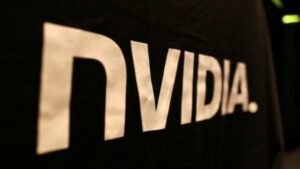Huawei Technologies’ semiconductor capabilities are under fresh scrutiny as NVIDIA now identifies the Chinese telecom giant as a potential rival in AI chips for the first time. With export restrictions preventing NVIDIA from shipping its GPUs to mainland China, Huawei’s new AI chipset, the Ascend 910B, is gaining attention as a replacement for NVIDIA’s products in the region.

The Ascend 910B, believed to surpass Huawei’s earlier Ascend 910, is comparable in computing power to NVIDIA’s A100 data-center GPUs. Fabricated by China’s top foundry, SMIC, on a 7-nanometer process, the Ascend 910B has attracted interest from industry insiders.
Despite US sanctions hampering Huawei’s semiconductor development since 2019, the company has strengthened its chip business by collaborating with domestic suppliers. The launch of the Mate 60 Pro, powered by the SMIC-made Kirin 9000s processor, showcased Huawei’s resilience in the face of the chip ban.
The emergence of the Ascend 910B coincided with the Mate 60 Pro’s release, with significant orders from companies like Baidu. Chinese AI company iFlytek also launched its Feixing One computing platform based on Huawei’s Ascend chips, indicating a growing interest in Huawei’s AI capabilities.
NVIDIA’s CEO described Huawei as a “really, really good company,” acknowledging its potential in the AI chip market. Amid increased focus on generative AI and tighter US sanctions, Huawei and SMIC are dedicating more capacity to AI chips.
Despite challenges, Huawei’s Ascend 910B is available for order, albeit with tight supply. Analysts note that NVIDIA benefits from its software ecosystem, CUDA, while Huawei’s Compute Architecture for Neural Networks is a crucial platform for AI computing power.
While Huawei may need to invest in strengthening its software capabilities, its strength lies in chip design. However, US sanctions pose challenges to chip performance and production yields, underscoring the importance of building a robust ecosystem for AI development.








